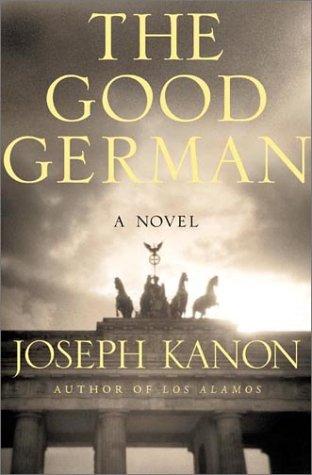Â
I'm currently reading The Good German by Joseph Kanon, who also wrote the best seller, Los Alamos. The book debuted in 2001 and was made into a movie in 2006, starring George Clooney and Kate Blanchett.
I have not seen the movie; but I doubt it could adequately do justice to the book, which explores through a variety of characters the question of what is right and wrong during war, what is evil and what is justified by the circumstances in which people find themselves during wartime.
It also portrays how people's lives were devastated in Berlin from the incessant bombing by the Americans by day and the British by night, only to be culminated by the complete shelling of the city by the Russians as they approached from the East.
The picture Kanon portrays of post-war Berlin in early 1945 during the first days of the occupation in which the city was divided into three zones--the American, the British, and the Russian--makes one wonder how a person who was not there could so vividly and accurately portray the devastation of the city, the starvation of its people, and the complete hopelessness of their situation.
Woven into that background is the story of a key scientist who helped in the building of the V-2 rockets who has been kidnapped by the Russians and whom the Americans desperately want back, a murder mystery, and a love story between an American journalist and the German woman married to the scientist.
However, it was the choices that people, both the military and the civilians, made as they were caught in Hitler's madness that moves this story forward.
This book may not be for everyone. I like historic novels. This one both horrified and fascinated me. I warn you, though. Once you begin it, you will not be able to put it down.




liberate the infamous prison camp where Koch had lampshades made of human
skin. Ted was in Vietnam during the Tet offensive. They made the choices
they had to make. It shattered both of them.